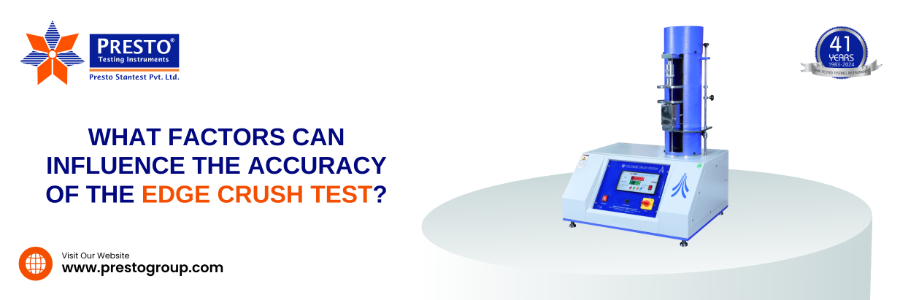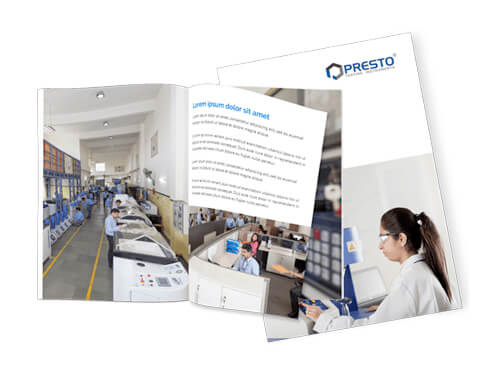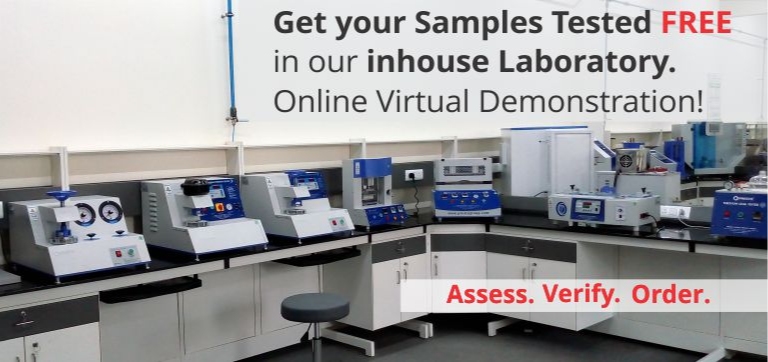Mistakes to Avoid While Operating the Box Compression Tester

Gaurav Malhotra
Are you tired of experiencing box failures that lead to damaged goods and frustrated customers? If yes, then it’s time to use the right lab testing equipment that can easily assess different factors of the quality of the box and ensure accuracy in test results. One of the essential quality parameters that needed to be taken care of before delivering the box is the box compression strength. The Presto box compression tester is one of the high-quality lab testing equipment that can be used to test the compression strength of boxes accurately when stacked over each other.
This high-quality lab testing equipment is one of the top-quality packaging testing equipment that can accurately test the compression strength of boxes accurately. In this blog, we will discuss brief information about the Presto box compression tester and some common mistakes that you must avoid while using the Presto box compression tester.
Introduction to Box Compression Tester
A box compression tester is a quality lab testing instrument that can be used to test the compressive strength of packaging materials such as corrugated cardboard, and fiberboard. This essential quality control lab testing equipment provides highly accurate compression testing results and ensures that quality materials will be delivered to the customers.
This lab testing equipment employs a motorized arrangement to apply a uniform compression force to the box placed on a flat platform. What sets it apart is its microprocessor-based display, guaranteeing precise test results. It also offers features like TARE and Peak Hold, over-travel protection, and a sturdy base plate with a rugged structure.
The bright LED display and feather touch controls enhance user convenience. Furthermore, it comes in both manual and computerized models, with various platform sizes and load cell capacities to suit your specific needs. Optional printer facilities are also available to streamline your testing process.
Now, let us discuss brief information about the features and technical specifications of this quality testing equipment.
Features of Presto box compression tester
- Microprocessor-based display for accurate test results
- Highly accurate test results under uniform compression Force
- TARE and Peak Hold Facility Available
- Over travel protection
- Strong base plate with a rugged structure
- Bright LED display
- Feather touch controls
- Available in Computerized model also
- Available in various platform sizes and Load Cell Capacity
- Optional Printer Facility
Technical specifications of Presto box compression tester
- Type: Compression
- Capacity: 500 Kgf
- Display: LED (Digital)
- Accuracy: ± 2% full scale (with master load).
- Least Count: 200 gm
- Power: 220V, Single phase, 50 Hz
- Test Platform Size: 450 * 450 mm
- Test Speed: 12.5 ± 2.5 mm/min
- Motor: 1 HP Three Phase, 1350 rpm
- Standard: ASTM D642, ASTM D4169, TAPPI T804, ISO 12048, and JIS Z0212
With these high-end features and technical specifications, manufacturers can easily conduct quality tests on the materials and ensure that quality products will be delivered to the customers. You can easily calculate the box compression strength, with the box compression test formula: BCT = 5.876*ECT*SQRT (P*T).
Variables:
- BCT is the Box Crush Test (BCT) ( )
- ECT is the edge crush test (ECT)
- P is the box perimeter (in)
- T is the box thickness (in)
Whenever you select the box compression tester for your industry then you need to take care of some factors. You can read more on the factors to keep in mind while using a box compression tester.
Now, let us discuss how you can easily use a box compression tester accurately.
Common Mistakes to Avoid When Operating the Box Compression Tester
There are several common mistakes that users can make while using a box compression tester, which can lead to inaccurate results or even damage the machine. Here are some of the most common mistakes to avoid:
1. Not placing the specimen accurately: One of the common mistakes that a user must avoid is the incorrect placement of the specimen. If the specimen will not be placed accurately then it will lead to inaccuracy in test results.
2. Not providing proper earthing to the instrument: If the box compression tester will not be provided with proper earthing then it may lead to fluctuations in the load indicator. Therefore, it is important for the user to check the sockets and operate the machine with proper earthing.
3. Failing to Calibrate it at regular intervals: It is important to calibrate your box compression tester, as this ensures the accuracy of readings. You can easily take the help of our team of experts that will guide you with machine calibration.
4. Placing the machine on an uneven floor: Placing the machine on an uneven surface can create instability, increasing the risk of accidents. Thus, it is important for users to avoid placing the machine on uneven surfaces.
Operating a box compression tester can be an easy process if you take care of these above factors. You can also read more about how a box compression tester works and get accurate testing results.
If you want a free sample testing session for the use of this quality testing equipment then you can give us a call at +91 9210903903 or email us at info@prestogroup.com. Our team of technical experts will consult you regarding all your needs and queries.
you may also like
- The Ultimate Guide to Lab Testing Equipment: Ensuring Quality with Precision Instruments
- GSM Calculator Guide: How to Measure Fabric, Paper & Plastic Weight
- What Is a Gloss Meter? Working Principle, Uses & Benefits Explained
- Applications of Tensile Testers in Plastic, Metal & Rubber Industries
- How UV Chambers Help Manufacturers Beat Sunlight and Weather Challenges
Recent News
- Paper & Packaging Testing Instruments
- Paint, Plating & Coating Testing Instruments
- Plastic & Polymer Testing Instruments
- Environmental Testing Chambers
- PET & Preform Testing Instruments
- Color Measuring Testing Instruments
- View Entire Range Instruments

Catalogue 2023
Get information about new product launches, research, innovation and endeavors at Presto.
download Free Copy
How it works
Get a Quote

